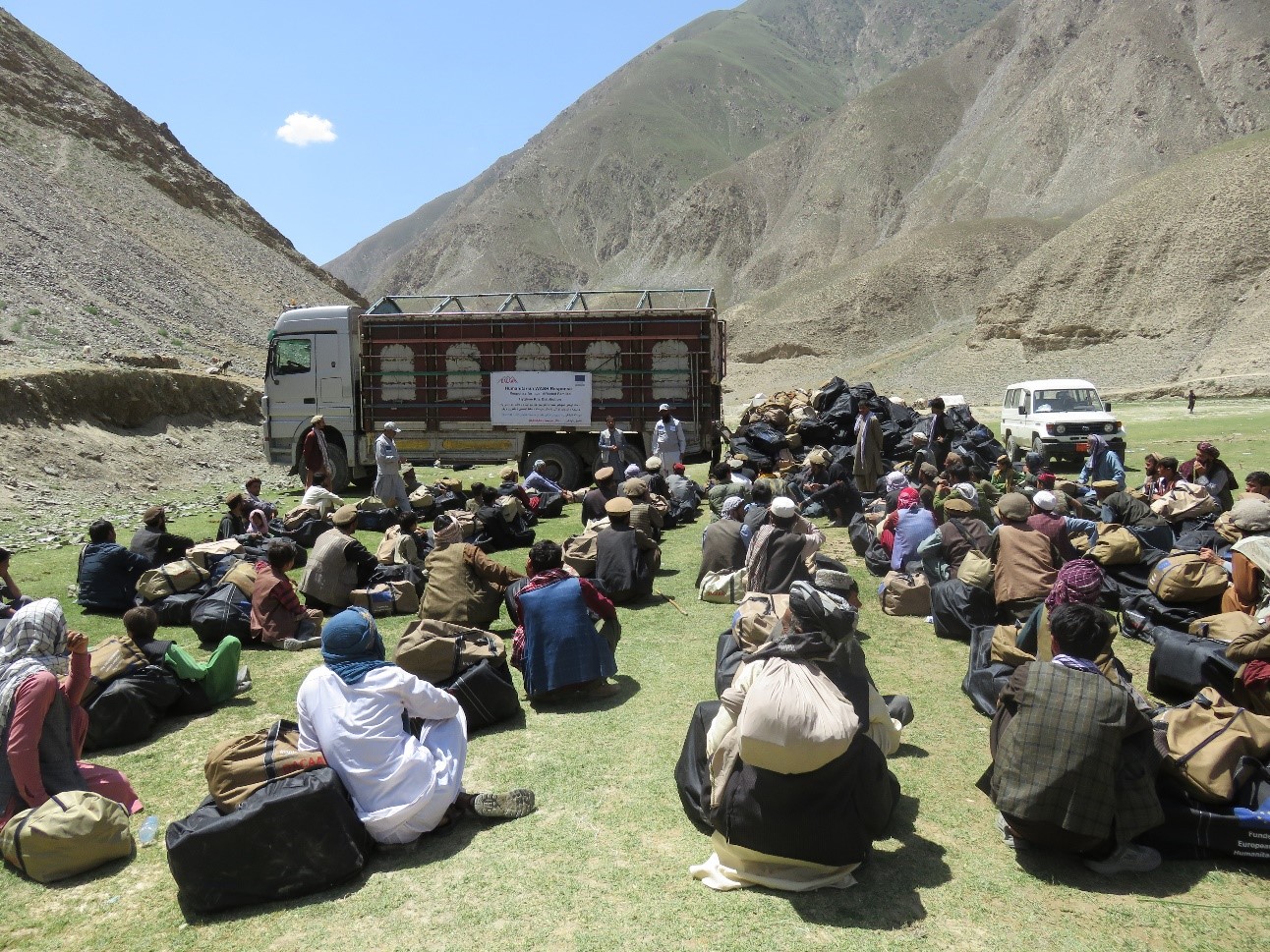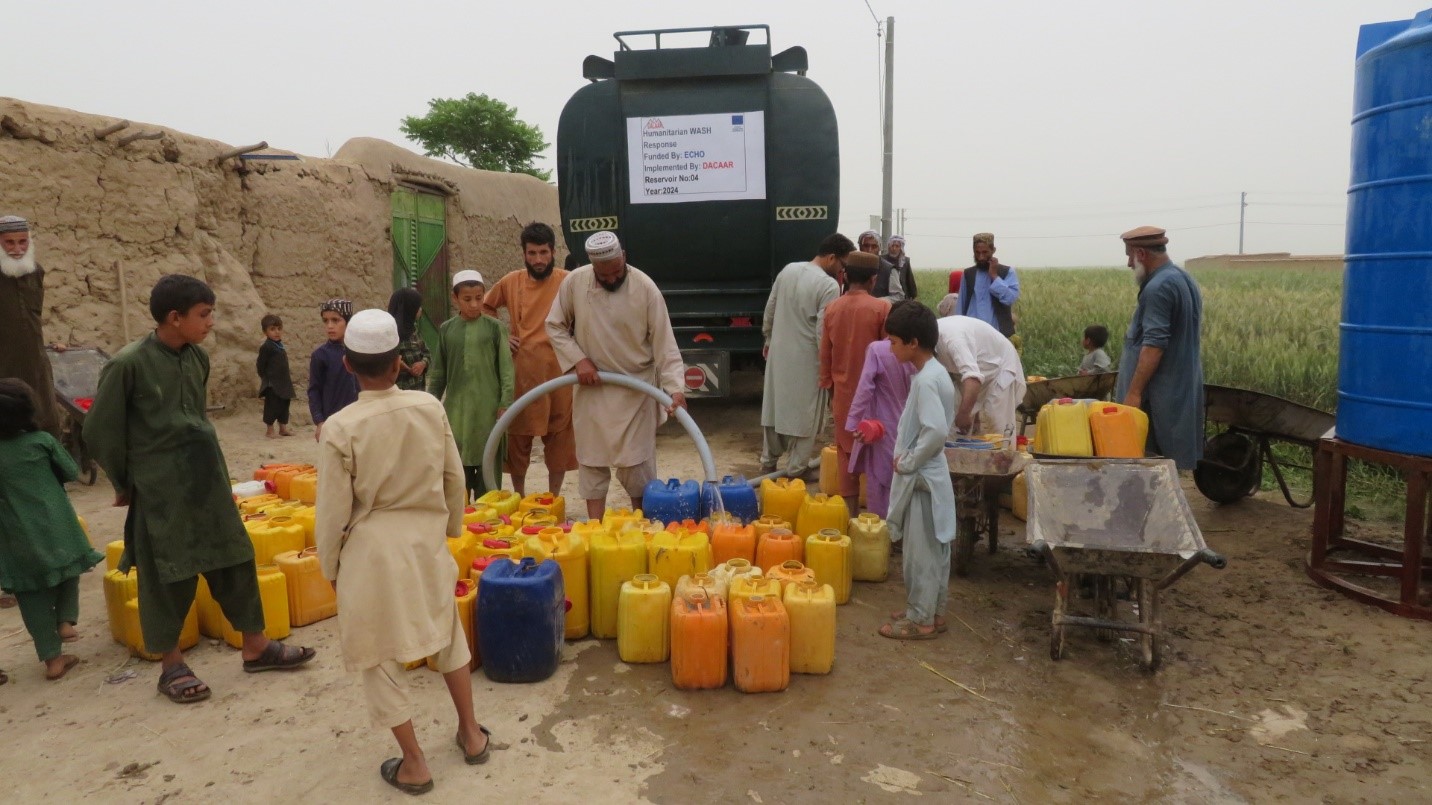Resilience Amidst Crisis in Baghlan: Shahab Uddin’s Story of Hope and Resilience
In the remote Jadid district of Baghlan province, 55-year-old Shahab Uddin stands as a testament to the resilience of Afghan farmers facing nature’s fury. With a family of eight relying on his labor, he has spent years cultivating the land that was once his pride and livelihood. However, in May 2024, an unprecedented crisis and heavy rainfall caused devastating flash floods, engulfing homes, farms, and the very essence of his community.
The floodwaters swept away Shahab Uddin’s livestock and destroyed his home, leaving his family in dire circumstances. As they watched their lives defenseless, many families fell back on open defecation and found themselves without access to safe drinking water. The specter of waterborne diseases like cholera and diarrhea loomed large, threatening their very survival.
Amidst the chaos, a beacon of hope emerged. DACAAR with the financial support of the EU https://civil-protection-humanitarian-aid.ec.europa.eu/, implemented the “Humanitarian WASH for vulnerable, remote and underserved communities in Afghanistan” project with the activation of a flexible mechanism, Crisis Modifier, from January to April 2024 and stepped in with vital assistance, providing crucial WASH (Water, Sanitation, and Hygiene) assistance to Shahab Uddin and his neighbors. The project included constructing EBL (emergency bath and latrine), conducting hygiene sessions, and distributing hygiene kits. The rehabilitation of wells, installation of bio-sand filters, and water trucking brought immediate relief, ensuring that clean water was accessible even in the most challenging conditions.

“When DACAAR initiated water trucking and distributed hygiene kits, they helped prevent our families from contracting waterborne and airborne diseases,” Shahab Uddin reflected, his voice tinged with gratitude. The relief efforts provided not only immediate assistance but also restored a sense of dignity to the community.
Despite these critical interventions, Shahab Uddin and his fellow villagers express a pressing need for sustainable solutions. "The relief efforts have not been sufficient for us. Our homes have been destroyed, and we have no place to live," he said. "If DACAAR could construct water networks or build shelters for us, it would be the optimal solution for our future."

Shahab Uddin’s story is a powerful reminder of the strength and tenacity of the human spirit in the face of adversity. With continued support and sustainable solutions, he and his community can hope to rebuild their lives and reclaim their dignity, rising above the floodwaters that once threatened to drown their dreams.

Written by: Israrullah Sahil
 Danish
Danish